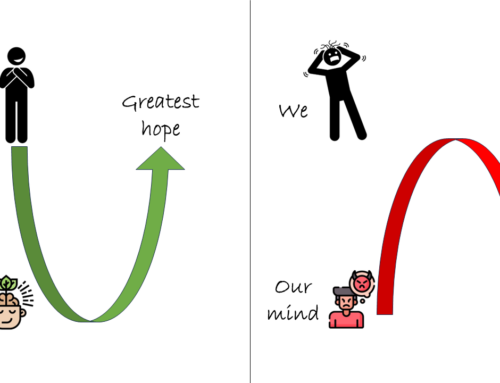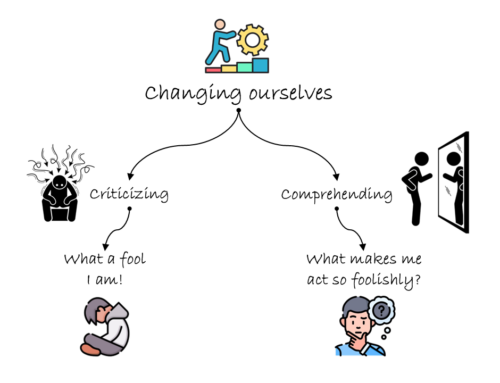In the well-known body-car metaphor, the soul is the driver of the bodily car. Though we are in the driver’s position, we aren’t always in the controlling position, which is the broader meaning of the phrase “to be in the driver’s seat.” Why aren’t we in the controlling position? Because we have a companion who constantly distracts us, “Look at that; just see that; that’s fascinating.” That distracting companion is the mind, who often makes us take detours that are frequently needless and occasionally reckless. Thus, the mind keeps us from working purposefully towards our worthwhile goals, spiritual or material. Pertinently, the Bhagavad-gita (06.05) urges us to not degrade ourselves with the mind.
To regain control of our life, we need to neglect the mind. To successfully neglect the mind, it’s vital to recognize that its power on us is limited – it can distract us, but not dislodge us from the driver’s seat. If we keep neglecting it consistently, it is gradually forced to acknowledge that its distracting tactics are futile and then it falls silent.
However, presently the mind keeps chattering constantly and persuading relentlessly, so neglecting it is difficult. The best way to shut out the mind’s chatter is to absorb ourselves in someone else’s voice, specifically Krishna’s voice in his Supersoul manifestation. He speaks to us internally as the voice of conscience and externally through guru-sadhu-shastra. When we study scripture and practice meditation, we start sensing Krishna’s voice more clearly, making tuning in to it easier. Being thus guided, we get a higher vantage point from which to dispassionately evaluate the mind and determinedly reject its self-defeating suggestions. Gradually, contact with the Supersoul reforms the mind, making it not only realize the wisdom of his counsel but also reiterate that counsel. Thus the mind becomes our friend.

Explanation of article:
Podcast:





Hare Krishna Prabhuji
PAMHO
Thank you very much for such a wonderful explanation of this verse.
The mind has to be definitely controlled if we are to progress spiritually. Otherwise, we get more and more entangled within the lower nature of Lust, Anger and Greed. This will then cause us to LAG behind in our spiritual journey.
Hari Bol
Narottama das
Hare Krishna Prabhuji,
I have one point to be clarified in this regard.
The mind often gives us self-defeating suggestions trying to distract us from our goal (material or spiritual). But does the mind always act destructively? We also often get some constructive ideas and thoughts which help us march towards our goal. Those who are materialists are also helped by the mind to act constructively and excel in their material profession. Such people don’t practise devotional life, still they have a high degree of mind control. So, is practising bhakti the only way to control the mind and also, how do we decide which schemes the mind promotes should be accepted and which of them should be rejected?
I humbly request you to guide me and enlighten me further in this regard.
Thanking you.
Answered here:
http://www.thespiritualscientist.com/2012/09/when-the-mind-sometimes-makes-us-do-good-why-do-we-consider-it-to-be-a-enemy/
ys
ccdas